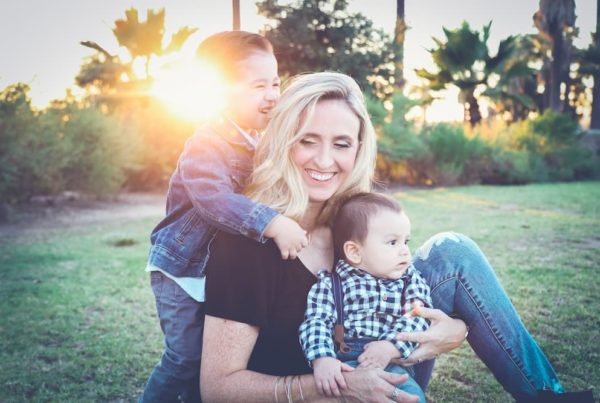In an ever-changing work landscape, it is now more important than ever to foster inclusive environments. LGBTQ+ inclusion in the workplace refers to cultivating and embedding a culture of support for our LGBT+ colleagues. It is everyone’s role to create a workplace that is free from discrimination towards LGBT + colleagues. Managers and leaders alike must role model behaviours and embed this at all levels in an organisation, thus creating and promoting a culture that is fair and equal to all, one where colleagues feel safe and bring their whole self to work.
From our experience as HR professionals, we promote and advocate the requirement to have best practice policies in place. The HR Suite can provide and offer support in the area of policy design to help organisations foster and embed inclusiveness at work.
What does LGBTQ+ mean?
LGBT + means lesbian, gay, bisexual and transgender people. It is an umbrella term used to refer to people with different sexual orientations and identities.
Transgender or trans refers to people whose identity does not align to the gender they were assigned at birth.
The plus in the LGBT+ initialism refers to people who identify as part of a group such as queer, intersex, asexual or other (also referred to as LGBTQIA+).
LGBT+ rights extend to the workplace and it is important all employees recognise the diverse groups of people who have different sexual orientations or identities.
How to support LGBTQ+ in the workplace?
-
Policies
Introducing and amending policies to support LGBT+ inclusiveness in the workplace is a positive step for all organisations and provides a guideline on how to create inclusivity in the workplace and includes an organisation’s position in relation to supporting a welcoming and equitable culture for all colleagues and how this is reflected across work practices and procedures.
Some organisations may wish to develop an overarching inclusion and belonging policy which encompasses a range of areas from neurodiversity, to menopause through to transgender inclusion. Other organisations may wish to create stand-alone polices for different areas such as LGBT+ inclusion, Transgender inclusion. Regardless of the decision, it is best practice to ensure a robust policy is in place to ensure the elimination of discrimination in the day-to-day operations of the organisation and to meet legal obligations.
The Hr Suite have a dedicated team of HR experts who can provide organisations with a comprehensive and best practice Inclusion and Belonging Policy which addresses key areas to promote inclusiveness in the workplace.
-
Regular awareness training
Policies are the first step in fostering a work environment of inclusiveness and outlines the legal requirements of the organisation and its people. But a policy in isolation is not sufficient, organisations must prioritise training on the topic, educate colleagues on LGBT+ community, the terminology and creating a workplace where discrimination is not tolerated. We in the HR Suite promote the need for each and every colleague to understand their role in cultivating positive workplaces. We have a dedicated Learning & Development team who have designed best practice training offerings to create awareness in all areas including a course on LGBT+ inclusiveness in the workplace.
-
Inclusive Language
Inclusive language is a starting point for all organisations. Management and HR professionals within organisations can make small changes and train colleagues on inclusive language and communication. It starts with holding respectful conversations, introducing, and embedding gender neutral pronouns, respecting colleagues wishes – some LGBT+ colleagues may want to be more private than others, for example, a transgender colleague may express their identity in may forms, from change of name, to dressing differently, wearing make up through to medical intervention. From our experience, the area of inclusive language and understanding how to address LGBT+ colleagues is an area that needs more work. Colleagues maybe be hesitant and afraid and not know how to address LGBT+ colleagues and may not want to cause offence. This should in its own right be a fundamental focus area for organisations.
-
LGBT+ forums and groups
Organisations can create safe workplaces for colleagues and representatives of the LGBT+ community to openly talk and share their experiences. When we start to break down these walls and create visibility it becomes an enabler of inclusion, understanding the personal journey of LGBT+ communities and the vulnerability some can face on a day-to-day basis.
Organisations can take a step further an put LGBT+ groups or forums in place which ensure representation, and go as far as celebrating PRIDE.
Conclusion
There is still a journey to go to foster LGBT+ inclusion within the workplace in Ireland. Some LGBT+ colleagues can feel vulnerable, unsure of how colleagues will welcome and support them. For organisations it is pertinent to not shy away from the topic but to promote respectful workplace conversations, management and leaders must lead by example and demonstrate a supportive environment, one that is underpinned by psychological safety where colleagues who are represented across the LGBTQIA+ community feel safe to come to work.
The HR Suite provide best practice HR Consultancy and HR Training & develop solutions for organisations nationwide. The HR Suite pride ourselves on providing HR solutions such as policy creation and additional HR services in the areas of recruitment and employment law
Our Learning & Development team specialise in designing and delivering best practice, up to date, practical training solutions for organisations.
We offer many inclusion & belonging training solutions to meet your needs, from an umbrella Inclusion and Belonging at Work Training. to stand alone ‘bitesize’ courses on the following topics including neurodiversity to supporting our LGBT+ colleagues.
For further information on promoting transgender awareness in the workplace there is a vast amount of information and practical insights on the TENI (Transgender Equality Network Ireland and on the LGBT website which promotes Lesbian, Gay Bisexual and Transgender inclusion and equality.







